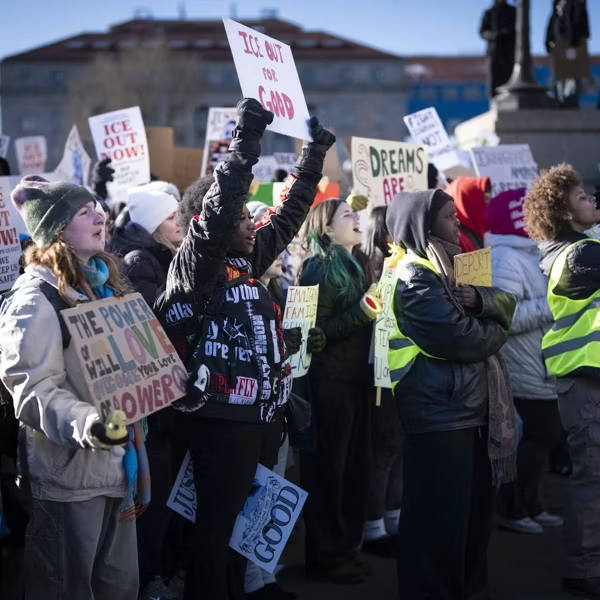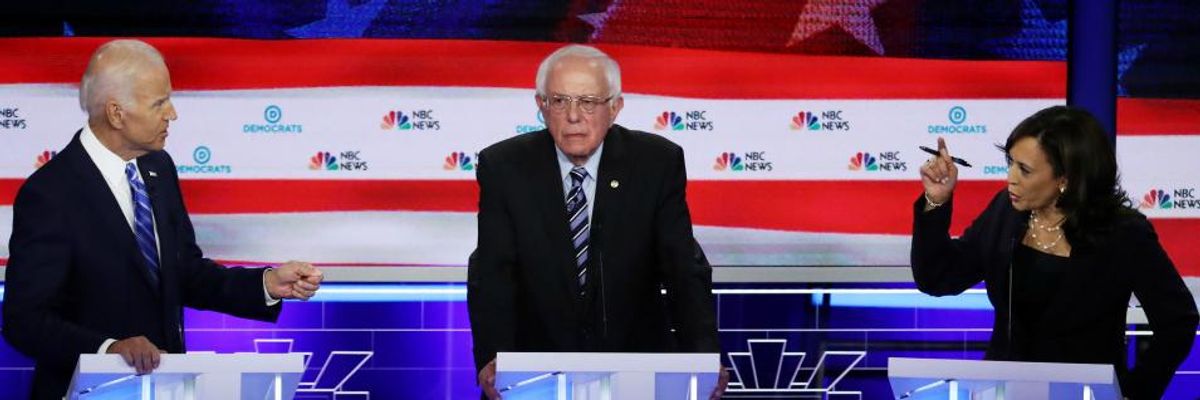Sen. Kamala Harris directly confronted Joe Biden over his civil rights record during Thursday night's Democratic presidential debate, highlighting the former vice president's opposition to school busing as a senator in the 1970s and his fond recollection of the "civility" of notorious segregationists.
After saying it was "hurtful" to hear Biden offer kind words earlier this month about two senators who "built their reputations and career on the segregation of race in this country"--James O. Eastland and Herman Talmadge--Harris invoked "a little girl in California who was part of the second class to integrate her public schools, and she was bused to school every day."
"And that little girl was me," Harris said.
"So I will tell you that, on this subject, it cannot be an intellectual debate among Democrats," added the senator from California. "We have to take it seriously. We have to act swiftly."
Watch the full exchange:
Biden responded by accusing Harris of mischaracterizing his record, claiming he "did not oppose busing in America."
"What I opposed is busing ordered by the Department of Education. That's what I opposed," Biden said.
But critics were quick to poke holes in the former vice president's account of his past.
"Biden's claim tonight that he only opposed federally mandated busing and did not generally oppose 'busing in America' was a flagrant misrepresentation of his position in the '70s and '80s," tweeted CNN reporter Daniel Dale. "He'd made crystal clear he opposed busing as a concept, as a matter of principle."
Responding to Biden's claim that he only opposed busing mandated by the federal government, Harris again highlighted her personal experience, noting that she "was part of the second class to integrate Berkeley, California public schools almost two decades after Brown v. Board of Education," the 1954 Supreme Court ruling that racial segregation in public schools is unconstitutional.
"There was a failure of states to integrate public schools in America... So that's where the federal government must step in," said Harris. "That's why we have the Voting Rights Act and the Civil Rights Act. That's why we need to pass the Equality Act. That's why we need to pass the [Equal Rights Amendment], because there are moments in history where states fail to preserve the civil rights of all people."




